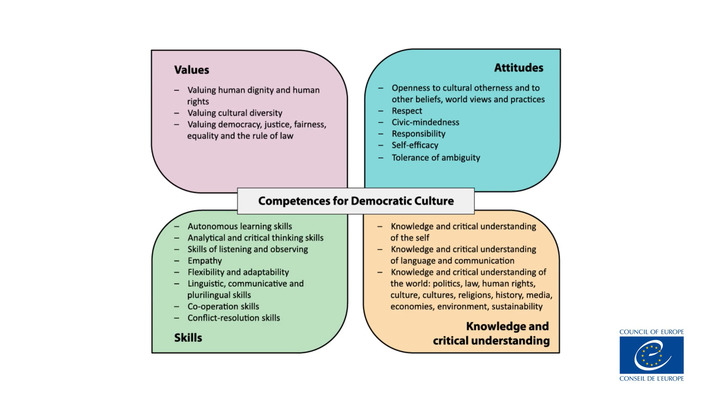Background of the
Democratic Schools Network
from Council of Europe site read here the whole text
‘School democracy’ is connected with inclusive and transparent decision-making at school governance level as well as at daily class and school life level.
It largely depends on the level and quality of participation of all school community members, in accordance with their different roles. (...) The right of children to be heard has been guaranteed by article 12 of the UN CRC and constitutes one of its general principles. This principle has been stressed also by Recommendation CM/Rec (2012)2 of the Committee of Ministers of the Council of Europe on the participation of children and young people under the age of 18.
An important tool in this respect is the Council of Europe’s Reference Framework of Competences for Democratic Culture (RFCDC). (...) TThe Framework is used to equip young people with the competences that are needed to take action to defend and promote human rights, democracy and the rule of law, to participate effectively in a culture of democracy, and to live peacefully together.
The Council of Europe considers it important that schools act as examples, by systematically using democratic principles in their work and operations, and to improve their models by comparing them and exchanging with other relevant actors. This is the reason why the Council of Europe has launched the Democratic Schools Network (DSN). (...) Due account is currently being taken of the particular needs and challenges that have arisen due to the Covid-19 pandemic and the resulting online operation of many schools for long periods.
Reference Framework of competences Vol 1.pdf
